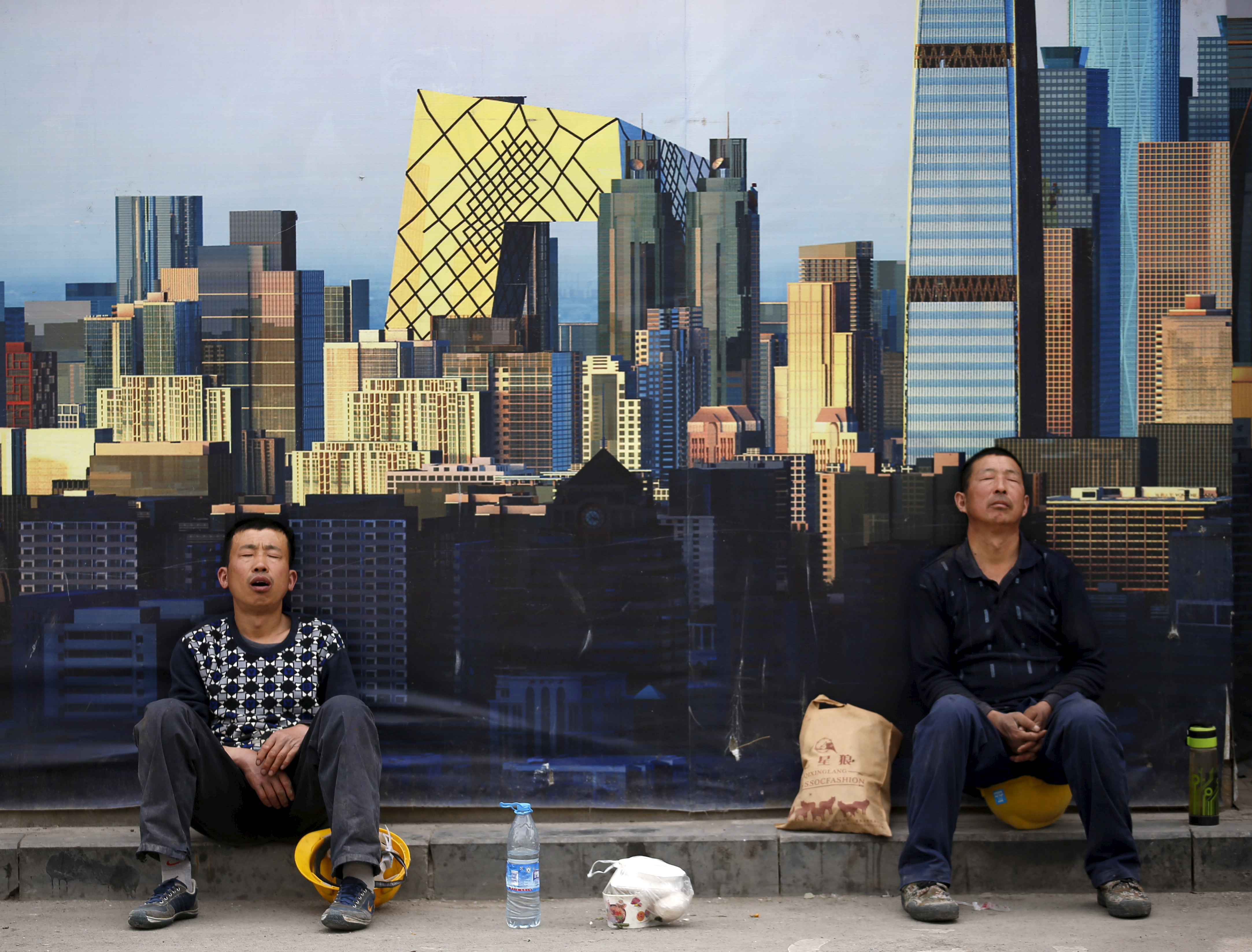
Construction workers sleep in front of a construction site wall during their lunch break on May 5, 2015 in Beijing, China. REUTERS/Kim Kyung-Hoon/File Photo
BEIJING, Aug 15 (Reuters) – China’s Bureau of Statistics said on Tuesday it has suspended publishing youth unemployment data, citing the need to improve the way it measures youth unemployment.
The decision, announced shortly after the release of weaker-than-expected factory and retail sales data, prompted a rare backlash on social media amid growing frustration over job prospects in the country.
“Currently, most graduate university students have already confirmed their employment goals and their employment status is generally stable,” said Fu Linghui, a spokesperson for the National Bureau of Statistics (NBS).
He added that the employment rate of graduates is “slightly higher than the same period last year”.
After regulatory hurdles in recent years eroded traditional sources of graduate employment — including the property, technology and academic sectors — young Chinese face a tough summer job hunting season.
The most recent NBS data on youth unemployment, released last month, showed the unemployment rate rose to 21.3% in June.
47% of graduates returned home within six months of graduating in 2022, up from 43% in 2018, the state-run China News Service reported last week, citing a private sector survey.
NBS’s Fu said the data will be suspended because “economy and society continue to develop and change, and statistical work must continue to be improved.”
Whether current job-hunting students should be included in the unemployment statistics and the definition of the age range, Fu said, “needs more research.”
China’s youth unemployment data tracks the 16- to 24-year-old age range.
The NBS’s decision was immediately mocked on Chinese social media, with a related hashtag garnering more than 10 million views on the microblogging site Weibo.
“If you close your eyes, it doesn’t exist,” a comment has been liked more than 5,000 times.
“There’s a saying ‘bury your head in the sand,'” another user wrote.
Last month a Chinese professor said the country’s real youth unemployment rate may have been closer to 50% in March, in rare public comments on the matter published in an article in financial magazine Caixin. The article was later censored.
Reporting by Larry Chen and Beijing Newsroom; Editing by Muralikumar Anantharaman and Sam Holmes
Our Standards: Thomson Reuters Trust Principles.
